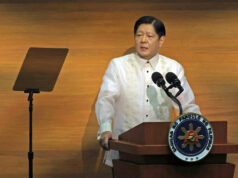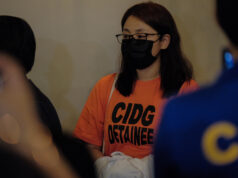Palace issues EO on 911 emergency hotline
By Camille A. Aguinaldo
Malacañang on Friday, June 1, issued Executive Order No. 56 declaring the number 911 as the nationwide emergency hotline number and replacing the current Patrol 117 hotline network.
The executive order, dated May 25, placed the Emergency 911 National Hotline Public Safety Answering Center under the direction and control of the Department of the Interior and Local Government (DILG).
It also urged local government units (LGU) to establish and run local 911 call centers using their own funds.
The Patrol 117 Commission was also replaced by the Emergency 911 Commission which will serve as the policy-making body and the overseer of the program with the DILG Secretary as the chairperson and Department of Information and Communications Technology (DICT) Secretary as vice-chairperson.
Calls to the emergency 911 hotline shall be free of charge, the executive order also ordered.
“There is a need to change the PATROL ‘117’ Hotline Network to Emergency 911 Hotline Number to conform with international standards on emergency numbers for public telecommunication networks,” the document stated.
The executive order designated primary service responders composed of the Bureau of Fire Protection (BFP) in cases of fire suppression operations, hazardous materials protection or emergency medical assistance, and the Philippine National Police (PNP) in cases of public safety and crime prevention.
Major support service responders are tasked to provide necessary assistance to the 911 program consistent with their respective mandate. These include:
• Department of Public Works and Highways (DPWH)
• Department of Health (DoH)
• Department of Transportation (DoTr)
• Armed Forces of the Philippines (AFP)
• National Bureau of Investigation (NBI)
• Bureau of Immigration (BI)
• Philippine Coast Guard (PCG)
• Philippine Drug Enforcement Agency (PDEA)
• Metropolitan Manila Development Authority (MMDA)
• local government units
• accredited non-government organizations (NGOs), hospital and medical institutions and facilities, public safety volunteers, and other organizations recommended by the Emergency 911 Commission.
Government agencies are also directed to provide the necessary assistance to the program. The public, meanwhile, is encouraged to participate in and advocate crime prevention, public order, and public safety.
The executive order also penalizes fraudulent or prank reports to be provided in the implementing rules and regulations.



